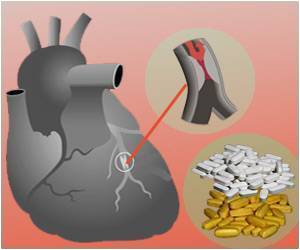Growth of colon polyps may be associated with intake of calcium and vitamin D supplements. These polyps are usually non-cancerous.
Highlights:
- Intake of calcium supplements along with vitamin D may give rise to colon polyps.
- Polyps are abnormal growths found in the inner lining of the large intestine .
- Women and smokers who are exposed to calcium and vitamin D supplements are at high risk of developing serrated polyps.
Polyps are of different types, but this study mainly focuses on the serrated polyps. These polyps occur rarely compared to the usual “adenomatous” type of polyps. Both have the same risk of developing into cancer. Some studies suggest that intake of calcium supplements and vitamin D protects the body from colon polyps. The studies show mixed results.
In order to investigate it further, a team of US-based scientists wanted to see whether intake of calcium and vitamin D supplements reduced the risk of serrated polyps.
The Study
The study involved about 2,000 patients aged between 45 and 75 years, who had a history of polyps and were due to a follow-up test (colonoscopy) in 3 to 5 years. Individuals with a family history of colon cancer, inflammatory bowel disease and other serious health conditions were excluded from the study. Several factors like diet, sex, weight (BMI) and the use of anti-inflammatory drugs were taken into account.
The remaining patients were split randomly into different groups. Some received calcium supplements daily, some Vitamin D supplements and a few of them had both together. Certain patients were not given any supplements for 3 to 5 years until their colonoscopy. The effects after the treatment period were also recorded.
Previous studies prove that women and smokers were at high risk when exposed to calcium supplements but no association was found between vitamin D supplements intake and serrated polyps.
In order to confirm the results, further studies are recommended to see if calcium and vitamin D supplements are really associated with the development of serrated polyps. They conclude by saying that this has an important implication on public health.
Meanwhile, the researchers suggest that patients with a history of pre-cancerous serrated polyps, mainly women and smokers may avoid the intake of calcium and vitamin D supplements.
About Colon Polyps Colon polyps are small growths in the inner wall of the large intestine. It is usually non-cancerous but can become cancerous if they are not treated properly. The common symptoms of colon polyps are abdominal pain, black stools, blood mixed with stools, anemia, pain and weakness. There are different types of polyps and are diagnosed by colonoscopy method. Polyps are mainly removed by surgical method.
Reference
- Seth D Crockett, Elizabeth L Barry2, Leila A Mott, Dennis J Ahnen, Douglas J Robertson, Joseph C Anderson, Kristen Wallace, Carol A Burke, Robert S Bresalier, Jane C Figueiredo, Dale C Snover, John A Baron. Calcium and vitamin D supplementation and increased risk of serrated polyps: results from a randomised clinical trial. Gut (2018)
Source-Medindia















